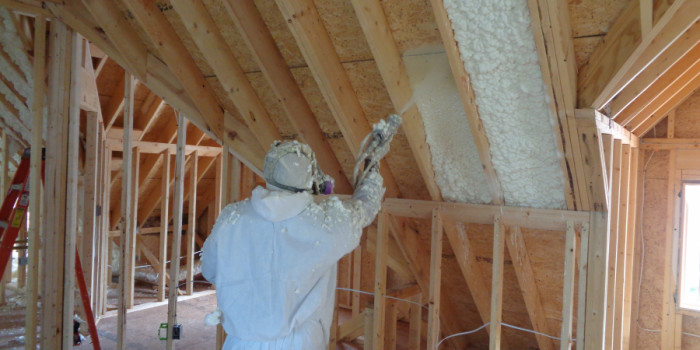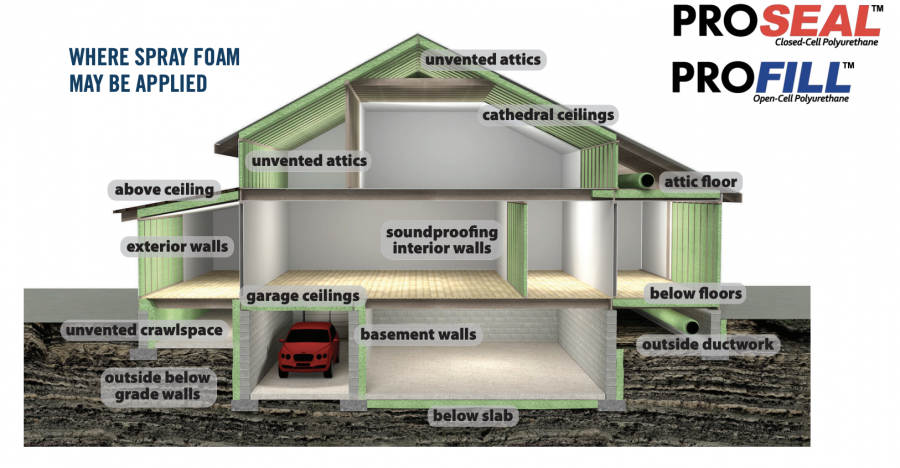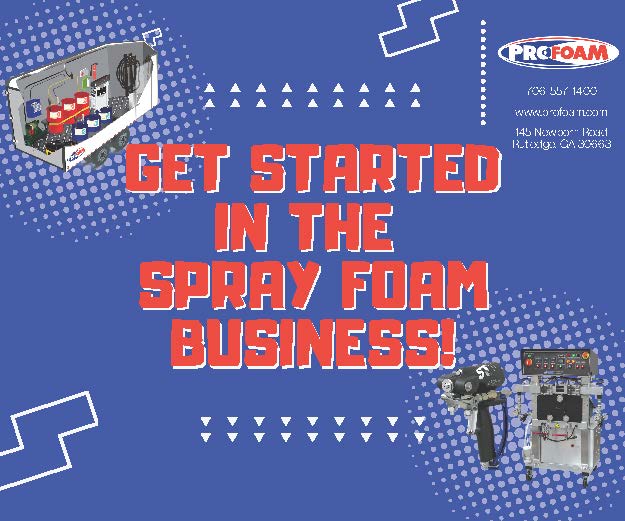
What Is Spray Foam?

Spray foam, also known as SPF (Spray Polyurethane Foam), is a versatile insulation material commonly used in construction and industrial applications. It is created by mixing two chemical components, polyol resin and isocyanate, which react when combined and expand rapidly to form a foam.
This foam can be applied in two main forms: open cell and closed cell. Open Cell foam is softer and lighter, with a lower R-value per inch, making it ideal for soundproofing and interior insulation. Closed-cell foam is denser and has a higher R-value per inch, providing superior insulation and moisture resistance, making it suitable for outdoor use, roofing, and areas prone to moisture such as basements and crawl spaces.

Some common applications of spray foam include:
- Insulation: Spray foam is widely used as insulation in residential, commercial, and industrial buildings. It is sprayed onto walls, ceilings, floors, and other surfaces to create a seamless, airtight barrier that prevents heat loss or gain, improving energy efficiency and reducing utility costs.
- Air sealing: Spray foam acts as an effective air barrier, sealing gaps, cracks, and voids in building envelopes. By preventing air leakage, it helps maintain consistent indoor temperatures, improves indoor air quality, and reduces the infiltration of dust, pollen, and pollutants.
- Roofing: Spray foam is used for roofing applications to create a seamless, waterproof barrier that protects buildings from water intrusion, leaks, and moisture damage. It can be sprayed directly onto the roof deck or applied as a protective coating over existing roofing materials.
- Soundproofing: The dense structure of closed-cell spray foam makes it an excellent sound barrier, reducing noise transmission between rooms and floors. It is commonly used in theaters, recording studios, offices, and residential buildings to minimize noise pollution and create quieter, more comfortable environments.
- Moisture control: Closed-cell spray foam is highly resistant to moisture and acts as a vapor barrier, preventing condensation, mold, and mildew growth. It is often used in areas prone to flooding, high humidity, or moisture infiltration, such as basements, crawlspaces, and below-grade walls.
Overall, spray foam offers a wide range of benefits, including superior insulation, air sealing, moisture control, and soundproofing capabilities, making it a popular choice for architects, builders, and homeowners seeking high-performance building solutions.
Need A Quote
Looking to get a quote for your next spray foam project? Click your project type below so that SprayFoam.com can help connect you with a local contractor in your area.
At SprayFoam.com, we’re here to support you every step of the way with expert guidance and trusted connections. Whether you’re a homeowner, contractor, or business owner, our team is ready to answer your questions, provide resources, and help you find qualified local contractors for your spray foam and coatings needs. Contact us today to learn more about spray foam applications, get competitive quotes, or simply discuss your project ideas with knowledgeable professionals who understand the industry inside and out. We look forward to helping you make informed choices and achieve great results!






